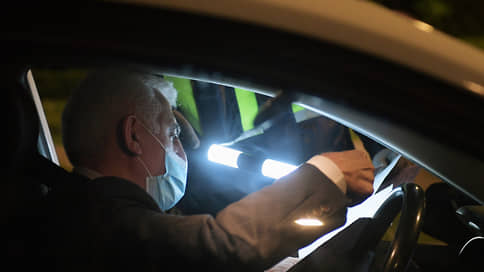Drivers banned for drug intoxication
[ad_1]

The White House is preparing to submit amendments to the Code of Administrative Offenses to the State Duma, allowing judges to punish drivers for traces of drugs found in the body. We are not talking about psychotropic or narcotic drugs, but, for example, anesthetics, antiepileptics, hypnotics and sedatives. The list of prohibited items will be set by the government, but experts suggest that it may also include antipyretic, antiviral drugs and antidepressants. In this regard, calls are already being made to fix the minimum allowable levels in the body of medicinal substances by analogy with alcohol, as well as to introduce special labeling for the convenience of drivers.
The Government Commission on Legislative Activities approved amendments to the Code of Administrative Offenses, which will allow punishing with deprivation of rights and a fine of 30 thousand rubles. drivers with traces of drugs in their bodies. This was reported on Monday by the Russian Bar Association (AJUR). According to Kommersant’s information, a government order has already been prepared to amend the State Duma.
The bill was developed in pursuance of the decision of the Constitutional Court (CC). In November 2022, we recall, the Constitutional Court banned the courts from punishing drivers whose bodies contained traces of drugs that were not psychotropic or narcotic (for example, phenibut, phenazepam, a number of antidepressants). Previously, in a number of regions, courts imposed sanctions on drivers even for a small trace of drugs in the urine, in others, on the contrary, they exempted drivers from liability at fairly high concentrations. The Constitutional Court, having analyzed this contradictory practice, by its resolution introduced a moratorium on the issuance of punitive decisions (the traffic police now does not send materials on such cases to the courts). At the end of December, the Ministry of Internal Affairs, as part of the regulatory settlement, submitted amendments to the Code of Administrative Offenses: they were discussed on regulation.gov.ru and have since been agreed upon by the ministries.
There is no data on how often drivers under the influence of drugs become the perpetrators of road accidents. For four months of 2023, according to the traffic police, there were 205 accidents with drivers under the influence of drugs, most of all in St. Petersburg (17), Moscow (16) and the Moscow Region (15). In 2022, drivers under the influence of drugs were involved in 951 road accidents.
The legal structure, agreed with the Ministry of Health and the State Legal Department of the President, is as follows.
In a note to Art. 12.8 of the Code of Administrative Offenses, a novel will appear that the punishment will be applied if, as a result of a medical examination, the driver’s body was found to contain substances that are part of the drugs, “impairing the attention and reaction” of a person.
Their list will be determined later by the Russian government. Narcotic and psychotropic substances listed in government decree No. 681 (which includes heroin, cocaine, morphine, codeine, etc.) will not be included in the new list. They are already banned (they were punished before and continue to be punished) – the decision of the Constitutional Court does not apply to such nomenclature (the Supreme Court clarified this in May). The amendments will enter into force 90 days after their publication.
“The proposed amendments will make it possible to make the so-called drug intoxication for drivers punishable,” Vladimir Gruzdev, chairman of the board of the AJR, explained on Monday. of people”. According to Mr. Gruzdev, the order of medical examination (order of the Ministry of Health) will also be adjusted – it will thoroughly record the procedure for determining drugs.
As for the list of prohibited substances, as Kommersant was told in the Ministry of Health, it will be determined with the participation of “leading experts” after the adoption of the law.
This may include anesthetics, antiepileptics, hypnotics, sedatives, and antiparkinsonian drugs.
This is stated in the explanatory note to the amendments, but specific substances and preparations are not named.
Lawyer of the Freedom of Choice movement Serhiy Radko predicts that antiviral, antihistamine, antipyretic, painkillers and antidepressants will also be included in the list. Therefore, the expert says, it is also necessary to establish the minimum quantitative thresholds for drugs, above which intoxication will be considered established, by analogy with the current threshold for the content of alcohol in the exhalation and blood.
In parallel with the government amendments, the LDPR also developed its own bill, the document was submitted to the State Duma at the end of 2022. The deputies proposed that Art. 12.8 of the Code of Administrative Offenses referred to the list of drugs, the use of which while driving would be prohibited, regardless of concentration. The name of the drug may not coincide with the banned substance, said Yaroslav Nilov, deputy chairman of the LDPR faction in the State Duma. “So that people do not read instructions and lists, drugs should be labeled with a special sign, meaning that it is forbidden to use the drug before driving a car, the ban is valid for such and such a time depending on body weight,” he told Kommersant. deprive the rights of those who did not even know that they had violated something.
[ad_2]
Source link








